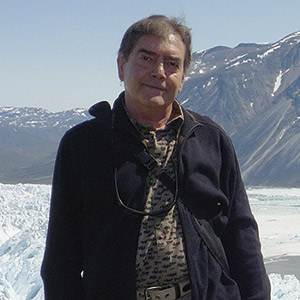BIO
In his more than 25 years as a journalist specializing in ecology and the environment, Gustavo Catalán has been in at the birth of issues that have since gone critical on a global scale: radioactive waste, the crisis of biodiversity, deforestation, climate change, and more. He started out as a photographer in the closing years of Franco’s dictatorship. In 1977 he joined the staff at the newly founded Diario 16 newspaper, where his images provided a documentary account of Spain’s transition to democracy. He received a number of honors during this period: the Freedom of Expression Award of the Spanish Union of Journalists in 1978; the Premio Popular granted by newspaper Pueblo in 1979, and the IPCO Award for Graphic Journalism in 1980 and 1982.
In 1983, Gustavo Catalán began to write. His work as a reporter for Diario 16 gives proof that environmental news coverage, then in its infancy, can be a journalistic area with enormous social impact. September 1983 found him aboard the Arosa I, a ship chartered by the A Coruña and Vigo city councils to protest against radioactive waste dumping by the UK nuclear authorities in the Atlantic Ocean, in an area 600 km to the west of Galicia fished heavily by the local fleet. His dispatches from Arosa I were among the factors deciding the United Kingdom to call off its dumping program.
Another reporting mission in 1989 took him to Antarctica on a Greenpeace ship. Once there he was able to prove that that scientific and military bases in the White Continent were burying their waste under a cover of snow, contravening the terms of the Antarctic Treaty which require them to reship it to their countries of origin.
That same year, Gustavo Catalán was appointed Environment Correspondent of the newspaper El Mundo, the first and so far only Spanish journalist occupying a post which is a fixture, for instance, in the British press. His articles under this byline are not only a chronicle of the milestone events in two decades of Spain’s environmental history, they also chart the transformation of a society that has gained a new awareness about its natural resources and has started to defend them.
“You feel a real satisfaction when a report makes its mark on public opinion and leads to a change in policy or new legislation,” says Catalán. For instance, when the Cabrera archipelago was declared a national park or when grid manager Red Eléctrica started to signal power lines to stop birds flying into them. Or when the Iberian lynx reproduction program was set up. And also when the Aználcollar and Prestige spills made it into the news headlines.
His book ‘Desprestige‘, published in 2003, gives a valued account of events during the ecological disaster that hit the Cantabrian-Atlantic coast. But Catalán adds: “These are not my triumphs alone; they belong to all the environmental reporters who kept the issue in the news, and all the individuals who dared to speak out and tell the inconvenient truth.”
In 2002, Gustavo Catalán was distinguished with the National Environment Prize in the Journalism category. In 2008, he received the Panda Award for environmental reporting from the World Wildlife Fund.

